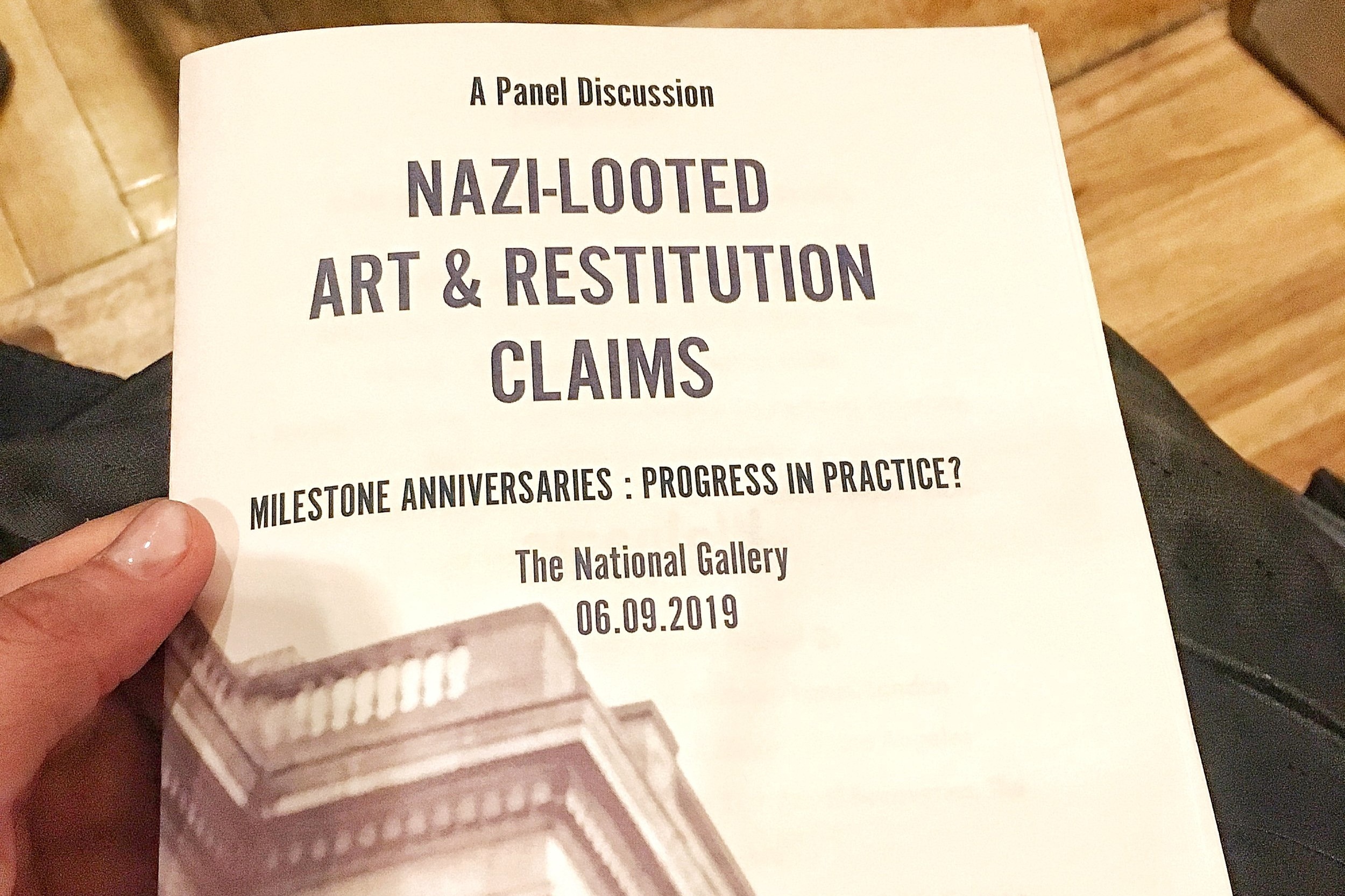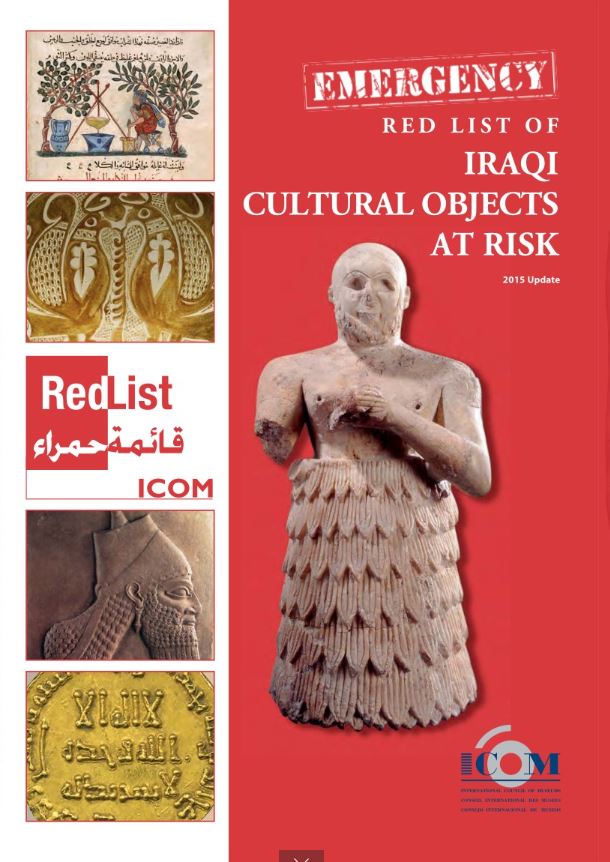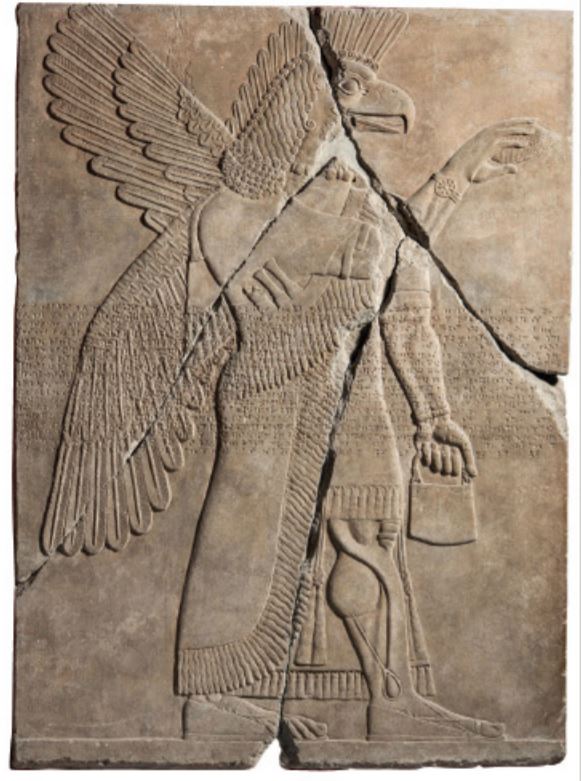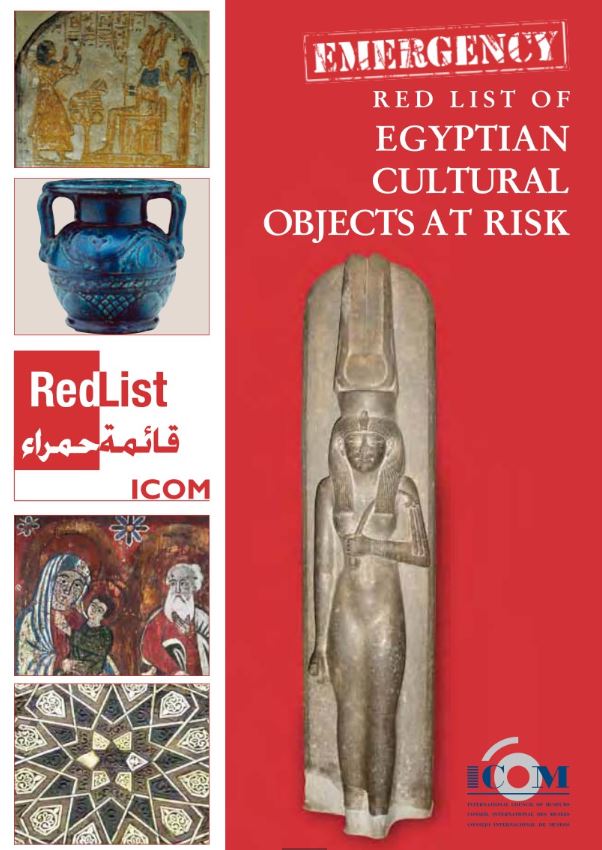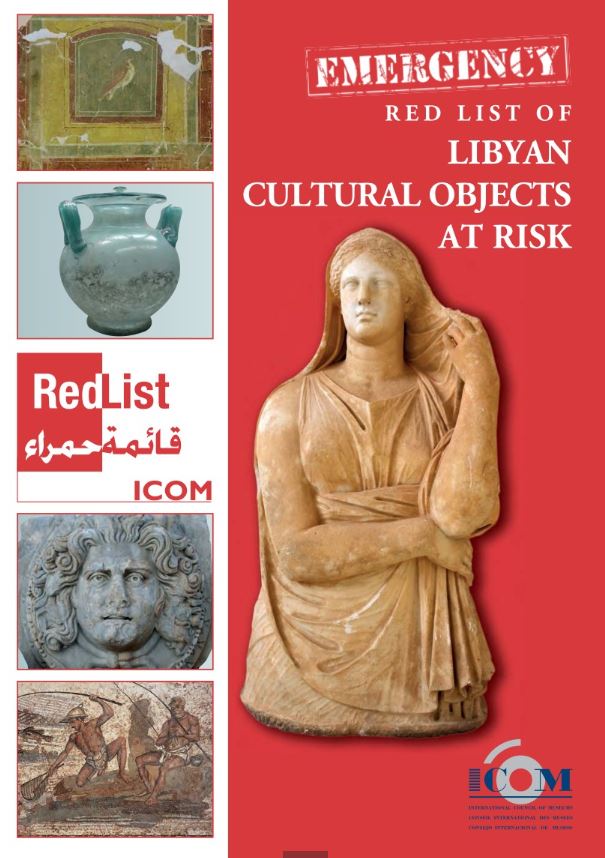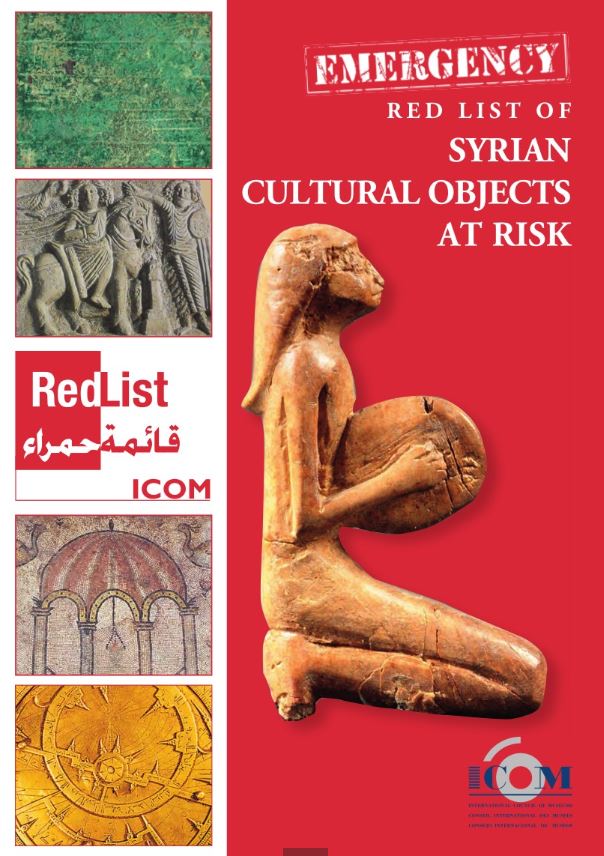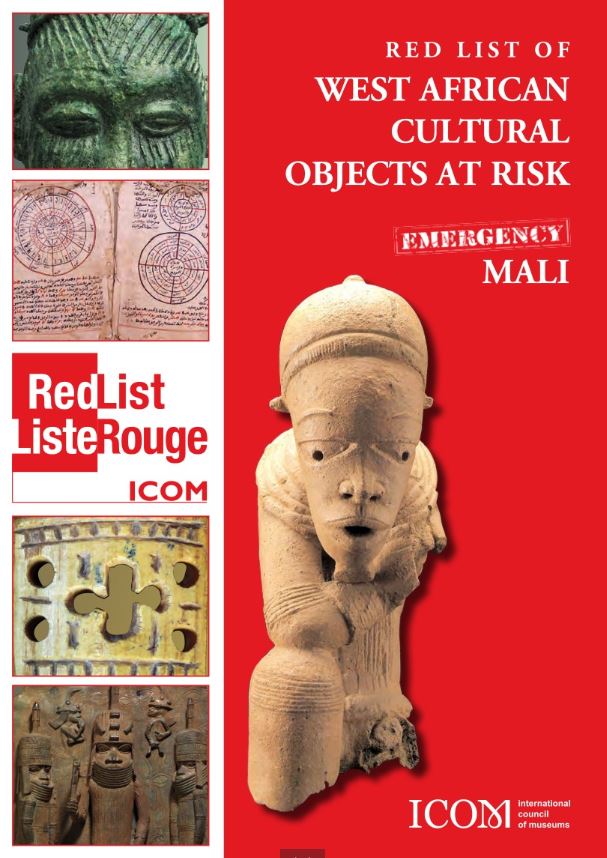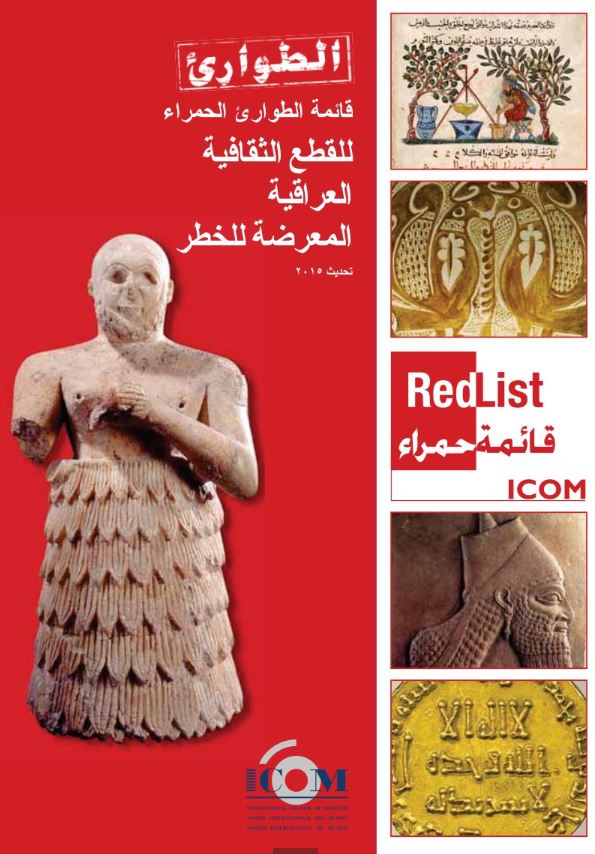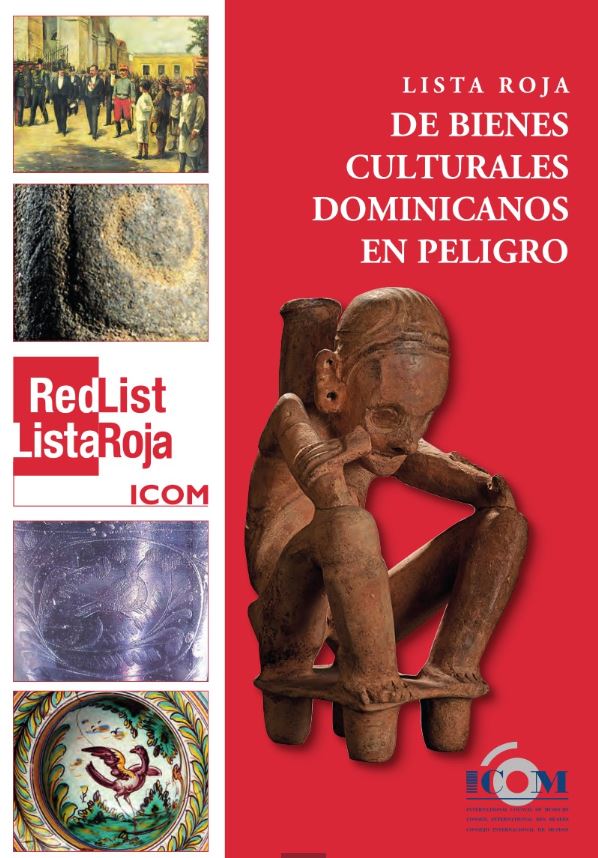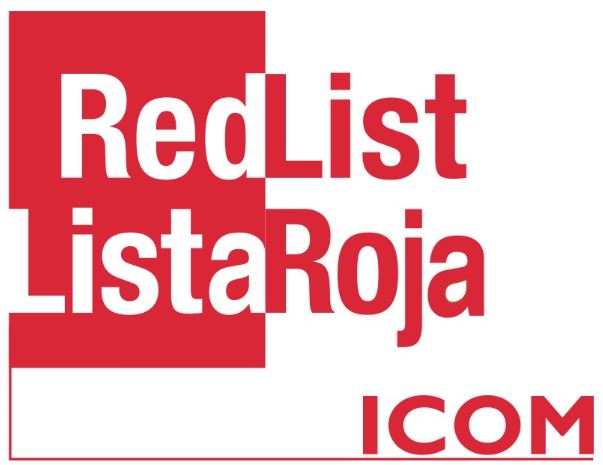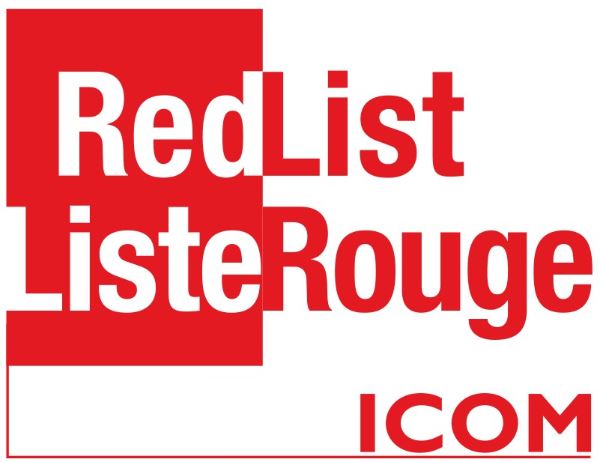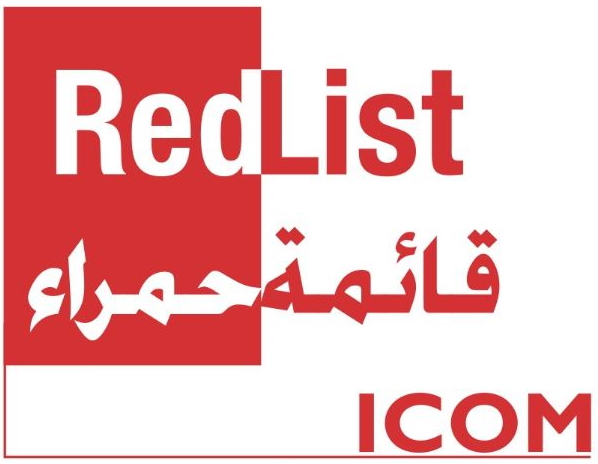Conservation Treatments and Reports as an Integral Part of Provenance Research
I’m honoured to have been invited to contribute to Flynn & Giovanni's The Provenance Research Blog.
Conservation treatments and their reports, which include condition reports, are an important yet underused asset in provenance research. As written and photographic witnesses to the state of an artwork at a specific point in time, including details on any damages, changes, place(s) of conservation, and history of the piece, these reports are an essential part of research.
You can read the full article here.
Renata Kaminker - Fine Art Solutions attends TIAMSA's Nazi looted art restitution panel discussion
It was a pleasure to be able to attend the event organised by the International Art Market Studies Association (TIAMSA) and Constantine Cannon LLP at the National Gallery of London, on “Nazi-Looted Art & Restitution Claims. Milestone Anniversaries: Progress in Practice?”.
Experts discussed current practice and future developments in the field of restitution claims to looted artworks. Panel experts experts included representatives from the UK Spoliation Advisory Panel, the V&A, the British Library, the J Paul Getty Trust, and the Commission for Looted Art in Europe.
Panel speakers included:
Antonia Bartoli, Spoliation Curator, British Library, London
Evelien Campfens, Leiden University, Leiden
Stephen W. Clark, Vice President, General Counsel and Secretary to the Board of Trustees, The J. Paul Getty Trust, Los Angeles
Jacques Schuhmacher, Provenance and Spoliation Curator, Victoria and Albert Museum, London
Tony Baumgartner, Spoliation Advisory Panel, London
Luis Li, Attorney, Munger, Tolles
James Ratcliffe, General Counsel and Director of Recoveries, The Art Loss Register, London
Anne Webber, Founder and Co-Chair, Commission for Looted Art in Europe, London
Renata Kaminker - Fine Art Solutions attends the joint Fieldfisher-Vastari seminar on art businesses under criminal investigation
I was delighted to attend the seminar jointly organized by Fieldfisher and Vastari on businesses under criminal investigation
The seminar, aimed at art dealers, galleries and intermediaries working with collectors in art transactions, focused on the UK’s Anti-Money Laundering Directives 5 and 6, as well as other practical issues such as:
What happens when law enforcement agencies investigate a person or business
Criminal tax investigations
Protecting data versus handing over material to law enforcement
Dealing with International Enforcement Agencies
Sanctions
It was a pleasure to participate in such an interesting event and hear from experts in the field.
#throwbackthursday Project management of ICOM’s Red Lists of Cultural Objects at Risk
Over the course of several years, I was in charge of managing ICOM’s Red Lists of Cultural Objects at Risk. Ispecifically worked on the Emergency Red Lists for Iraq, Egypt, Syria, Libya, and the Mali section in the West African list, as well as the regular Red List for the Dominican Republic.
I also monitored and reported on emergency situations for museums and cultural heritage sites for ICOM and the International Committee of the Blue Shield, and training of museum professionals on fighting illicit trafficking of cultural goods, collections inventory, and emergency situations.
Projects were finished on or ahead of schedule, and under budget. This allowed for the remaining funds to be invested in new Red Lists as the demanded required them. It was an honor to work on these long-lasting tools dedicated to fighting illicit trafficking of cultural goods around the world, and specifically in conflict areas.
The success of the Watch Lists was illustrated by the request of the US Blue Shield Committee to have a list drawn for Libya, to be given to NATO before the air strike. The result was that extensive site damage was avoided, thanks to NATO having their exact coordinates.



